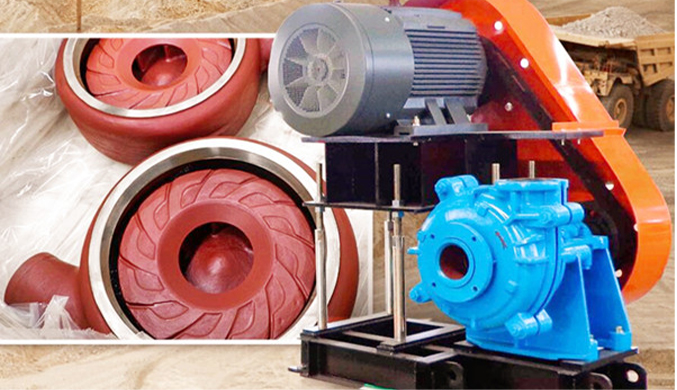Occitan
- Afrikaans
- Albanian
- Amharic
- Arabic
- Armenian
- Azerbaijani
- Basque
- Belarusian
- Bengali
- Bosnian
- Bulgarian
- Catalan
- Cebuano
- Corsican
- Croatian
- Czech
- Danish
- Dutch
- English
- Esperanto
- Estonian
- Finnish
- French
- Frisian
- Galician
- Georgian
- German
- Greek
- Gujarati
- Haitian Creole
- hausa
- hawaiian
- Hebrew
- Hindi
- Miao
- Hungarian
- Icelandic
- igbo
- Indonesian
- irish
- Italian
- Japanese
- Javanese
- Kannada
- kazakh
- Khmer
- Rwandese
- Korean
- Kurdish
- Kyrgyz
- Lao
- Latin
- Latvian
- Lithuanian
- Luxembourgish
- Macedonian
- Malgashi
- Malay
- Malayalam
- Maltese
- Maori
- Marathi
- Mongolian
- Myanmar
- Nepali
- Norwegian
- Norwegian
- Occitan
- Pashto
- Persian
- Polish
- Portuguese
- Punjabi
- Romanian
- Russian
- Samoan
- Scottish Gaelic
- Serbian
- Sesotho
- Shona
- Sindhi
- Sinhala
- Slovak
- Slovenian
- Somali
- Spanish
- Sundanese
- Swahili
- Swedish
- Tagalog
- Tajik
- Tamil
- Tatar
- Telugu
- Thai
- Turkish
- Turkmen
- Ukrainian
- Urdu
- Uighur
- Uzbek
- Vietnamese
- Welsh
- Bantu
- Yiddish
- Yoruba
- Zulu
Telephone: +86 13120555503
Email: frank@cypump.com
Nov . 05, 2024 12:55 Back to list
residential sewer pump
Understanding Residential Sewer Pumps A Comprehensive Guide
In the realm of plumbing and wastewater management, residential sewer pumps play an indispensable role. These devices are designed to efficiently transport wastewater from homes to the municipal sewer system or a septic tank. For homeowners, understanding the functionality, types, maintenance, and benefits of sewer pumps is essential for ensuring effective sewage management and preventing potential plumbing disasters.
What is a Residential Sewer Pump?
A residential sewer pump, often referred to as a sewage pump, is a specialized device used to pump waste and sewage from a lower elevation to a higher elevation, particularly when the natural gravitational flow is insufficient. These pumps are typically installed in basements, lower levels, or homes situated below the street level where the sewer lines are located. They help ensure that sewage is disposed of properly, thereby avoiding sewage backups and unpleasant odors.
Types of Sewer Pumps
There are primarily two types of sewer pumps that homeowners should be aware of
1. Submersible Sewage Pumps These pumps are designed to operate when submerged in wastewater. They are often durable and capable of handling solid waste materials, making them ideal for residential use. Their design allows for quieter operation and greater efficiency in pumping large volumes of water.
2. Effluent Pumps Unlike submersible sewage pumps, effluent pumps are used for pumping only liquid wastewater. They are typically used in systems that require the movement of liquid waste from a septic tank to drain fields or for situations where wastewater needs to be pumped to a higher elevation before it can flow into a sewer line.
Importance of Sewer Pumps in Homes
Having a reliable sewer pump in your home is crucial for several reasons
residential sewer pump

- Preventing Backups One of the primary benefits of a sewer pump is its ability to prevent sewage backups. A backup can lead to significant health hazards, damage to property, and costly repairs. - Maintaining Hygiene By effectively transporting sewage away from the home, sewer pumps help maintain a clean and hygienic living environment.
- Supporting Infrastructure These pumps assist in managing household waste more effectively, reducing the burden on local sewage systems. This is particularly important in areas where the sewage infrastructure may be struggling to keep up with demand.
Maintenance Tips for Sewer Pumps
Regular maintenance is key to ensuring the longevity and effectiveness of a residential sewer pump
- Inspect Regularly Keep an eye on your pump to detect any signs of wear and tear. Checking the power supply and connections periodically can also help identify any potential issues early on.
- Clear Debris Make sure that the sump pit is free of debris or unnecessary items that could obstruct the pump's operation. Regular cleaning of the pump's filters is also essential.
- Test the System Regularly test the pump by pouring water into the pit. This will ensure that it activates and operates as expected.
- Professional Servicing Schedule regular inspections and servicing by a professional plumber to ensure your sewer pump is in optimal condition, especially before heavy usage months.
Conclusion
Understanding the importance of residential sewer pumps can help homeowners take proactive measures to manage their plumbing and wastewater systems effectively. By knowing the different types of pumps, recognizing their benefits, and committing to regular maintenance, homeowners can significantly reduce the risk of sewage problems and ensure a safe, clean, and efficient home environment. Investing time and resources into the proper management of sewer pumps will pay off in the long run, providing peace of mind and an improved quality of life.
-
Heavy-Duty Mining Sludge Pumps - Wear-Resistant Slurry Handling
NewsAug.02,2025
-
Horizontal Split Case Pump with GPT-4 Turbo | High Efficiency
NewsAug.01,2025
-
ISG Series Pipeline Pump - Chi Yuan Pumps | High Efficiency, Durable Design
NewsAug.01,2025
-
Advanced Flue Gas Desulfurization Pump with GPT-4 Turbo | Durable & Efficient
NewsJul.31,2025
-
ISG Series Vertical Pipeline Pump - Chi Yuan Pumps | Advanced Hydraulic Design&Durable Construction
NewsJul.31,2025
-
ISG Series Vertical Pipeline Pump - Chi Yuan Pumps | Energy Efficient & Low Noise
NewsJul.31,2025










